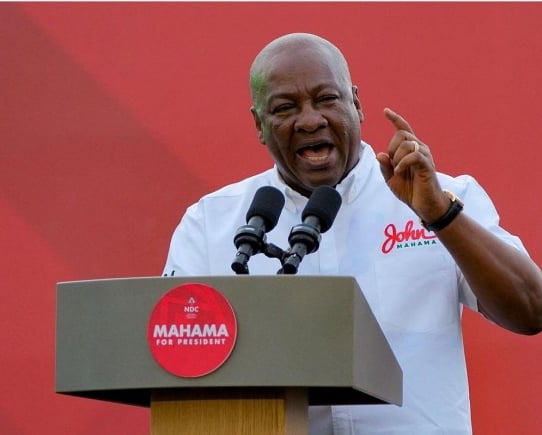The National Democratic Congress (NDC) is gearing up for significant changes in youth employment and development as they prepare for the 2025 elections. Under the leadership of former President John Mahama, the party’s agenda includes an ambitious overhaul of the Youth Employment Agency (YEA). The proposed reform aims not only to increase the number of jobs available for young people but also to introduce a National Employment Bureau that will maintain a database of unemployed youth. This initiative is part of a larger strategy to invigorate the workforce through education, skills training, and entrepreneurial opportunities, intending to leverage the innovative capacities of young Ghanaians for both personal growth and national progress.
Mahama has articulated that the NDC’s focus will extend to the National Service Scheme, proposing a restructuring to align it with national development goals. By reviewing allowances for national service personnel and instituting a National Service Authority Act, Mahama plans to create a structured program that will emphasize the importance of civic duty and national identity among the youth. This would include a dual approach to transitioning from school to work, facilitating the acquisition of necessary skills and practical tools while pushing for innovative solutions from young entrepreneurs to tackle pressing social issues like sanitation and food security.
A cornerstone of Mahama’s proposals is the creation of a dedicated Ministry of Youth Development. This ministry would centralize youth-related policies and initiatives across various governance levels while ensuring that local content policies are integrated into key sectors such as energy, mining, and telecommunications. The aim is to establish a coherent framework for addressing youth economic challenges, including unemployment, education, and health. By implementing the National Youth Authority Act of 2016, the NDC plans to promote active youth participation in decision-making processes, thereby strengthening community engagement and representation.
Beyond institutional reforms, Mahama envisions fostering an environment conducive to entrepreneurship among the youth. His government plans to work closely with the private sector to launch the Youth Innovation and Industrial Parks (YIIP) initiative. This initiative seeks to enhance the capabilities of young entrepreneurs through the establishment of co-working spaces, business startup services, and market development for their products. By creating these ecosystems at the district level, the NDC aims to empower young people to develop sustainable livelihoods, which is particularly crucial in rural areas where economic opportunities are often limited.
The NDC also recognizes the importance of inclusivity as part of its employment strategy, with plans to increase the representation of persons living with disabilities within local government bodies by mandating that 5% of hires come from this demographic. Additionally, the government will focus on improving access to healthcare through increased availability of sign language interpreters, highlighting a commitment to accessibility and equal opportunities for marginalized groups.
In conclusion, Mahama’s NDC is positioning itself with a strong youth development agenda framed around job creation, entrepreneurship, and broader economic empowerment. With a clear focus on employing young people, enhancing education and skills, and fostering a participatory spirit, the upcoming government is poised to implement innovative policies intended to unlock the full potential of Ghana’s youth. The overarching goal is to create a robust foundation for national development that resonates with the aspirations and needs of young Ghanaians, enabling them to contribute significantly to the nation’s growth and development.














